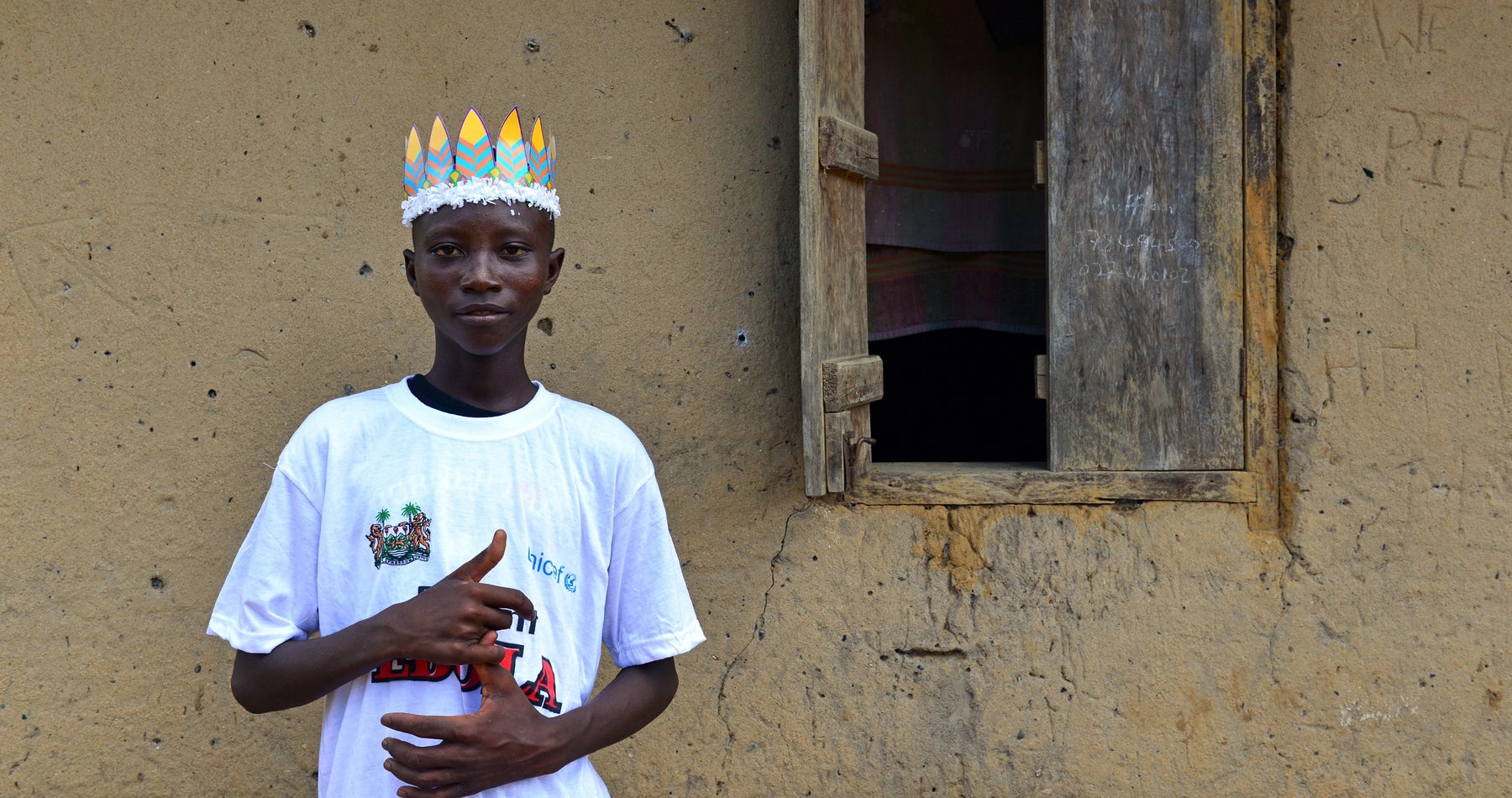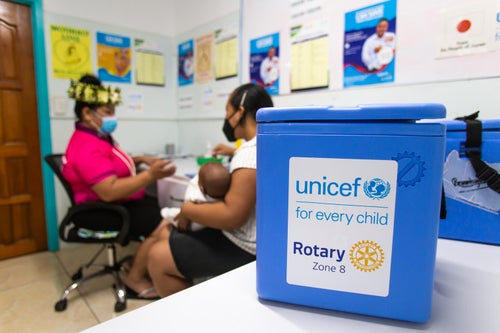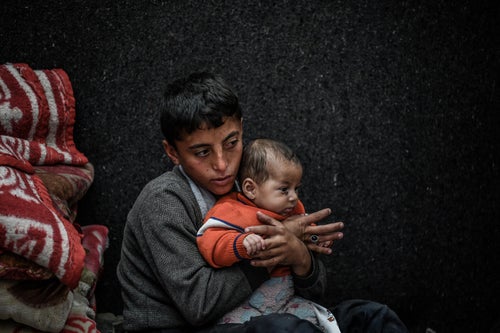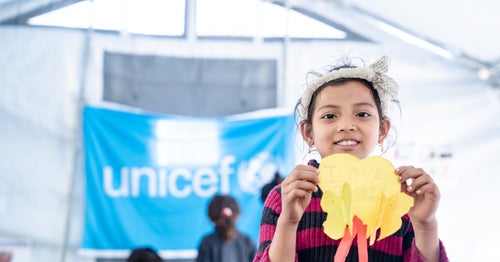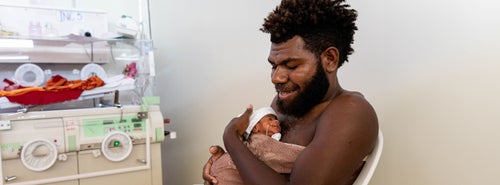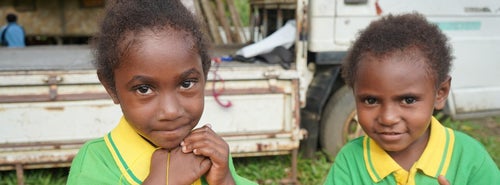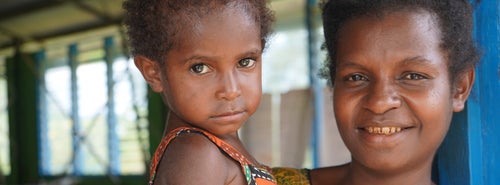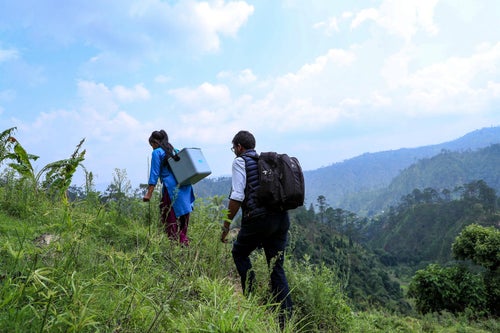Musu Koroma will never forget the day she received the shattering news that her 14-year-old son Sanfa had died of Ebola.
Sanfa had been at school in Gbonjiema, two-hours walk from his small village, when he first showed signs of the virus and was taken to the district capital for treatment.
“I heard from the government officials that the two boys infected in the village Gbonjiema had died,” says Ms. Koroma.
A traditional funeral ceremony was organised. Mourners cooked and shared a meal, with some food set aside to feed Sanfa’s spirit on his journey to the next life.
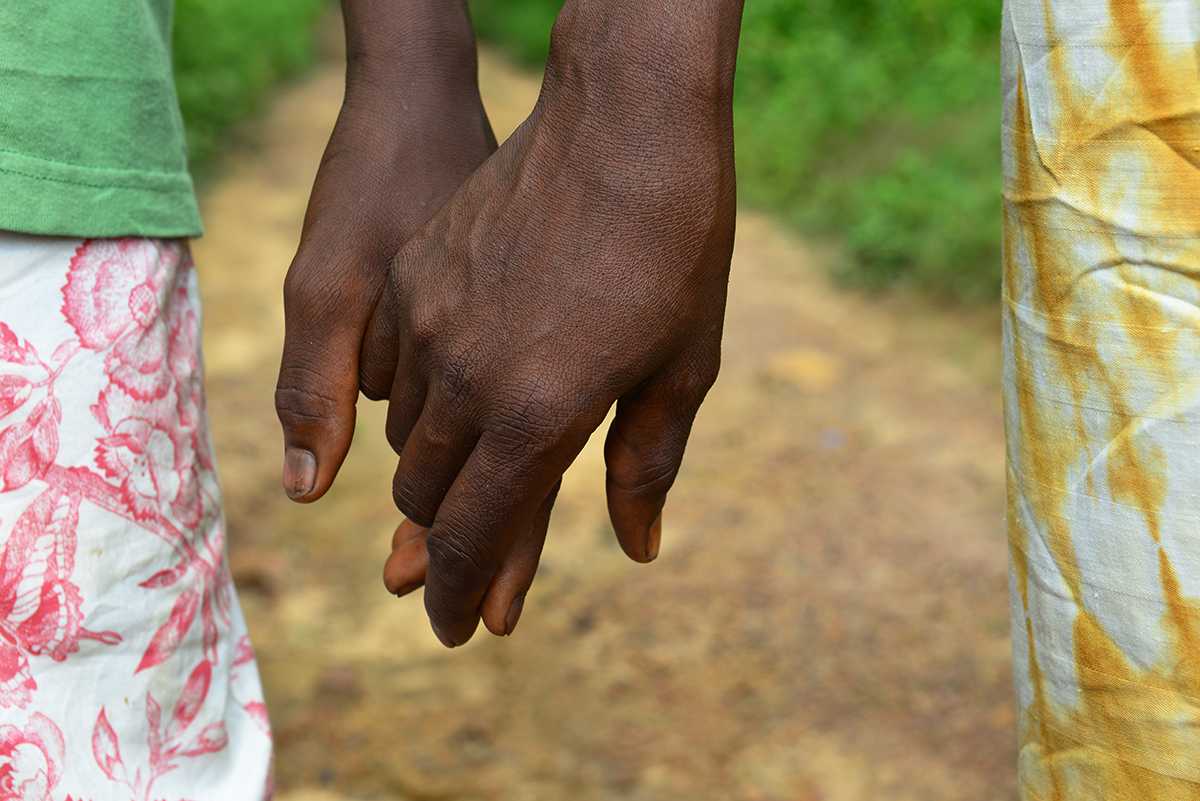
Back to life, back to the community
As the family tried to cope with their grief, information began to surface that Sanfa might be alive. Reports of his passing were the result of poor lines of communication — a problem that would continue, as the family had their hopes lifted and dashed various times in the days following Sanfa’s ‘death’.
As it turns out, Sanfa had survived.
When he was released from care, the entire village turned out to welcome him home, a spectre who had defeated the deadly illness.
UNICEF provided support to help reunite the family and reintegrate Sanfa into his community, assuring a social service officer would be present, delivering a Reunification and Family Tracing kit and helping to arrange distribution of food rations by the World Food Programme.
Sanfa returned home with a store of rice, beans and palm oil and some other essentials to start life again from scratch. UNICEF also delivered therapeutic food to help Sanfa rebuild his strength.
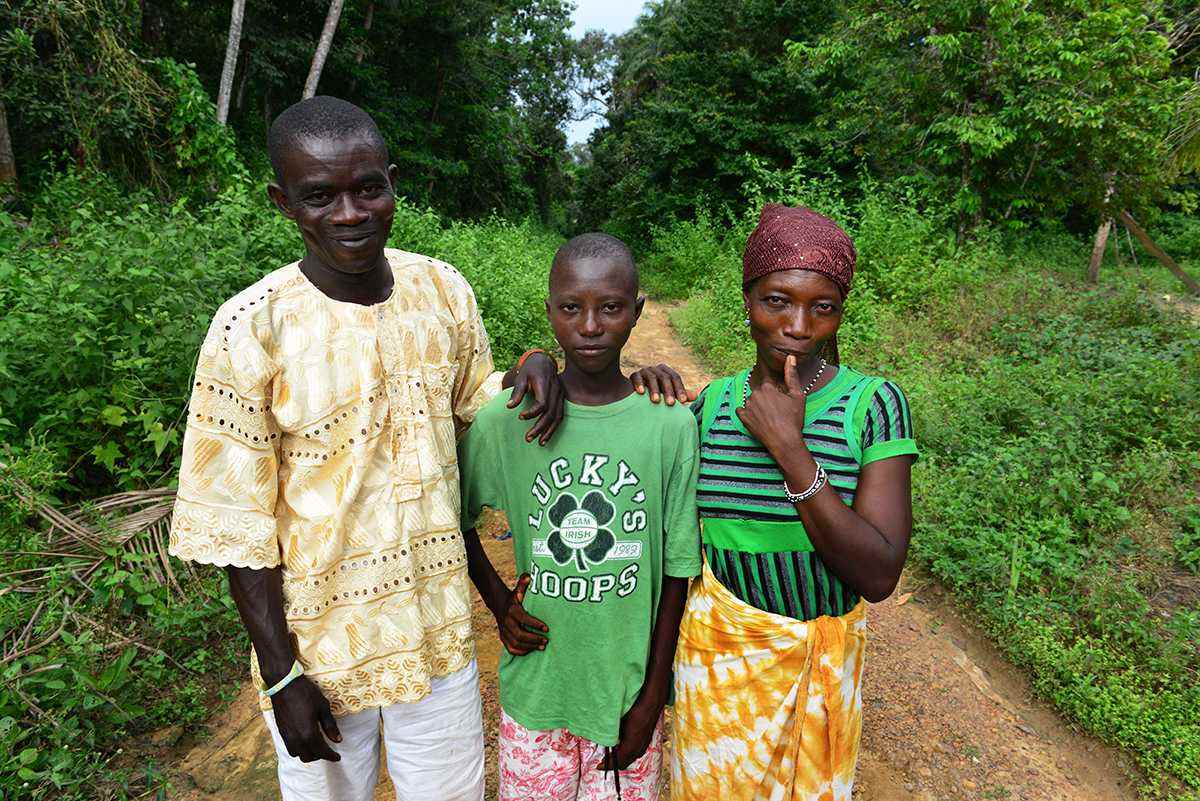
A new role for Sanfa
Survivors of Ebola can face stigma and discrimination when they are well enough to return to their homes. Sanfa’s community, however, welcomed his return. Not only had the boy survived Ebola — but his re-entry into the village helped reinforce messaging about Ebola that UNICEF and partners had been delivering to help avoid stigma. “We had heard through the radio that survivors could not infect other people,” says Sanfa’s uncle Joseph, a teacher.
Now that Sanfa is well on the way to rebuilding his strength, he is putting his ‘second life’ to use in the fight against Ebola. UNICEF is carrying out social mobilisation activities in Gbonjiema to spread awareness about Ebola and how to avoid it.
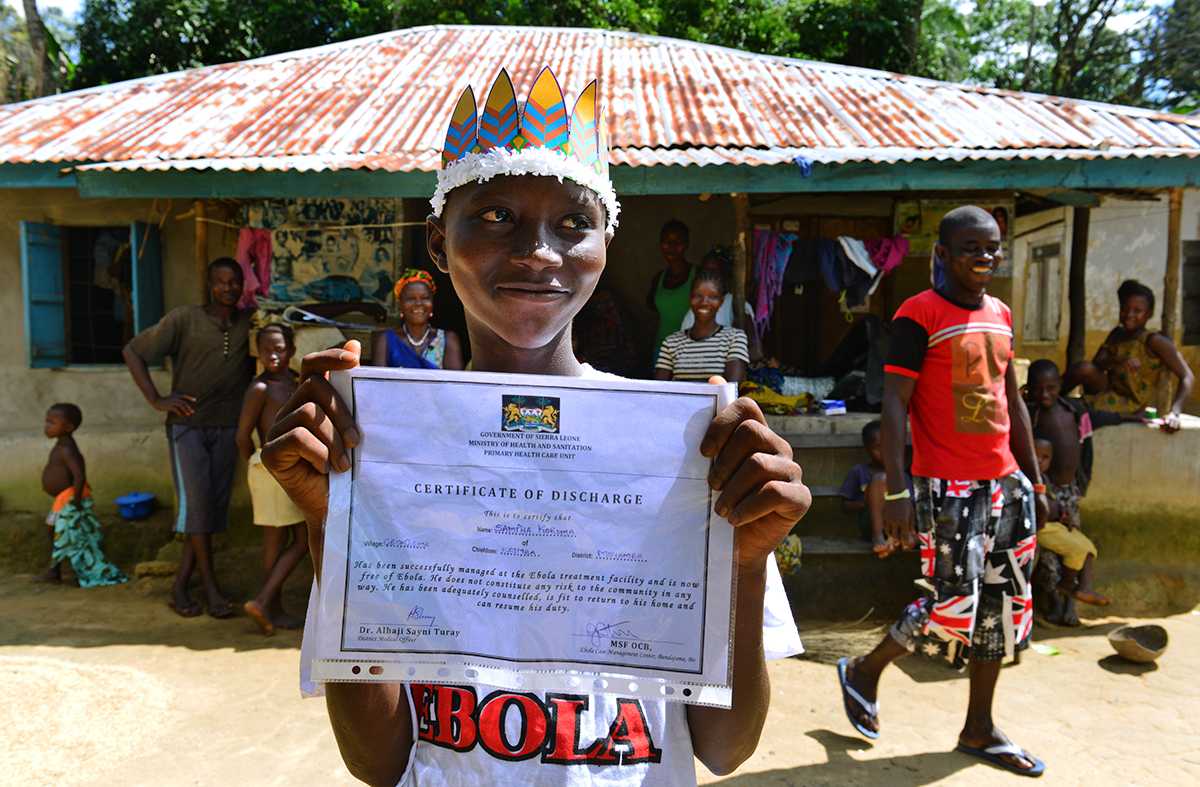
At a recent event, the audience listens captively as Sanfa speaks. His voice is secure and clear. He is proof that Ebola doesn’t have to be a death sentence.
"People in the Ebola treatment centre gave me food and drinks, and they encouraged me. I knew that I was going to get better."
“When you feel the first symptoms, go to the hospital,” Sanfa says.
When Sanfa has finished talking, there is silence. He looks a bit tired after the effort — he’s still recovering — but he sees the role he can play in the fight against Ebola.
It’s been a confusing and difficult time for his family. But, with Sanfa on the mend, and on the road helping spread the word about preventing and treating Ebola, these villages in Sierra Leone can steel themselves against this killer virus and take steps toward staying well.
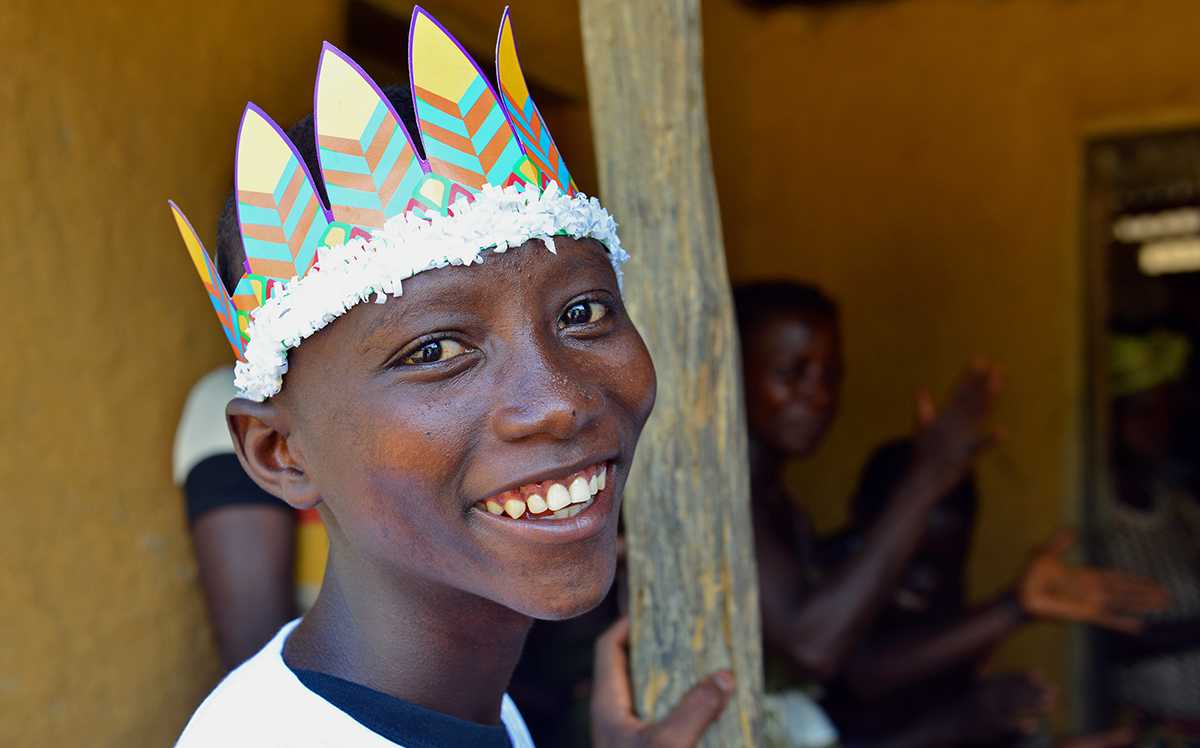
Ready for the next outbreak
To stop an epidemic of Ebola or other deadly diseases, UNICEF needs to be ready to launch an emergency response without delay. You can help give our teams the medical, hygiene and water supplies they need to take action and save children's lives.
Donate now to help UNICEF reach children where the need is greatest.
Related articles
Stay up-to-date on UNICEF's work in Australia and around the world



